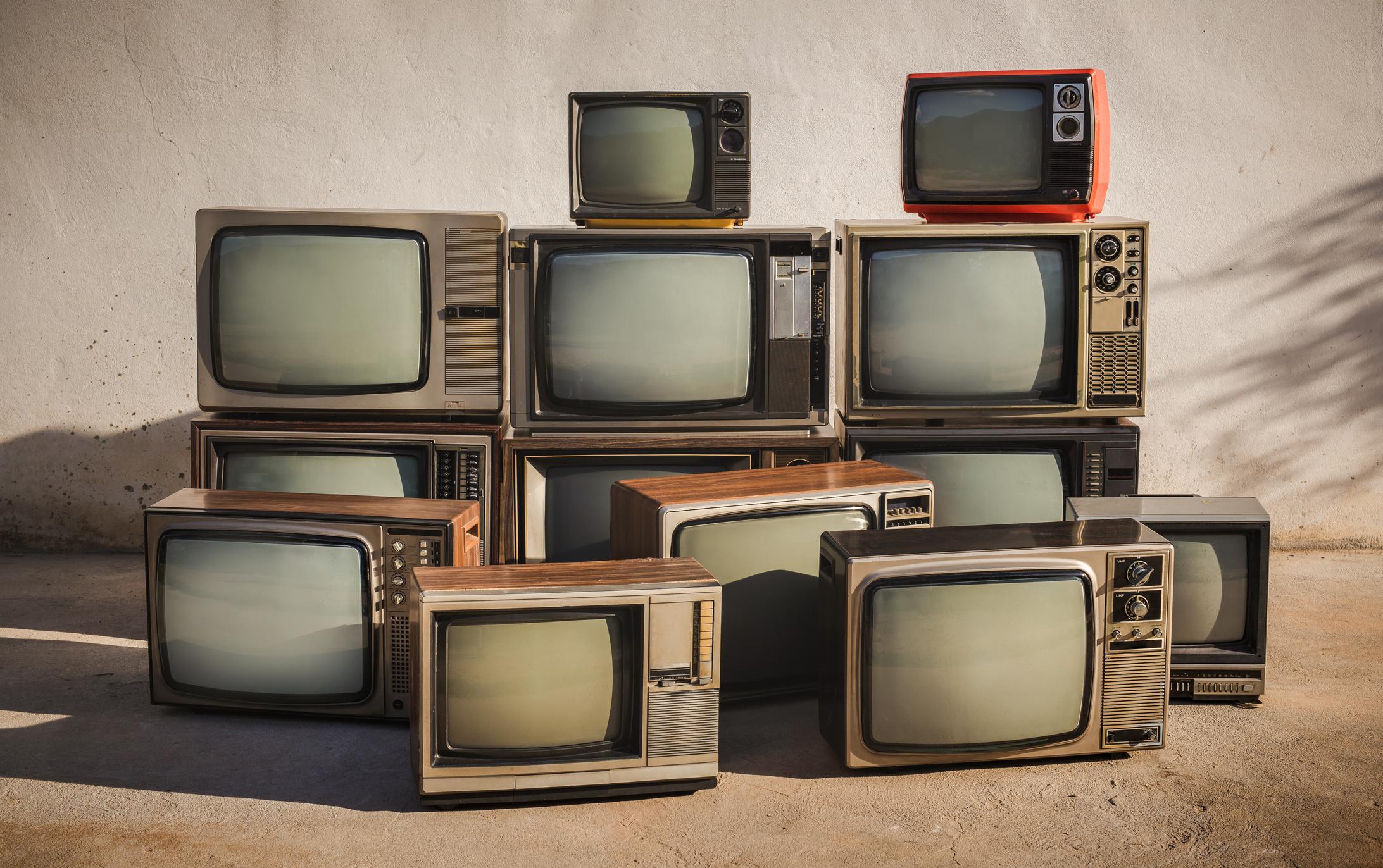Hosts
About the episode
Sometimes, the perfect guest to discuss your own writing is … you. On this special crossover episode, I am interviewed by Ben Smith and Max Tani of Semafor‘s Mixed Signals podcast about my recent essay “Everything Is Television.” During our conversation, which you can also find on the Mixed Signals feed, we discuss TV, politics, the definition of charisma, and much more.
If you have questions, observations, or ideas for future episodes, email us at PlainEnglish@Spotify.com.
Listen to my episode on the Mixed Signals feed here.
You can find my essay “Everything Is Television” here.
In the following excerpt, Derek talks to Max Tani and Ben Smith about how all forms of media are converging to become more and more like TV.
Max Tani: I read your essay that you published last month arguing that everything is TV now, which we both thought was excellent. But we’re really curious and wanted to take a step back. When you say everything is TV, you’re not talking about how everything is just The Office or everybody’s just watching Mad Men constantly now. You’re arguing something else. Can you explain a little bit about what you mean when you say everything is TV? What is that?
Derek Thompson: Yeah, sure. I think maybe the best way to get into this is to tell you how the idea came to me. Ironically, it came to me having conversations about podcasting. We are talking on Riverside right now, making a podcast that is also going to be available to people who want to watch us, I believe, on Spotify or YouTube or on Semafor.
Ben Smith: Like and subscribe.
Thompson: Like and subscribe. And I was having conversations with folks from The Ringer about whether my podcast, Plain English, should also be a YouTube show, essentially, or a Netflix show, because some Ringer shows are going to Netflix. And I was thinking, initially I got into podcasting because I liked that it wasn’t a visual medium; it was a purely auditory medium. It allowed me to multitask. I could make my coffee while listening to Ben and Max talk about the future of media. And now, there was this pressure to essentially turn internet radio into television. It’s a little bit annoying to me, but I understand the market case for it. I think there is one industry analysis that found that video podcasts are growing 20 times faster than audio podcasts, so anybody with any interest in growing their podcasting presence would or should automatically say, “Well, yeah, I should make this product video as well.” Podcasts, it seemed to me, were turning into television.
And I was thinking about this when I came across an FTC filing by Meta where Meta was trying to argue to the federal government that they couldn’t possibly be a social media monopoly because they weren’t a social media company. And they said in this FTC filing, “Today, only a fraction of time spent on Meta’s services—7% on Instagram, 17% on Facebook—involves consuming content from online ‘friends.’ … A majority of time spent on both apps is watching videos, increasingly short-form videos that are ‘unconnected’—i.e., not from a friend … and recommended by AI-powered algorithms,” et cetera, et cetera. And I read this, and I thought, “Oh my God, here you have Meta, its back against the wall, trying to make an argument to the federal government—telling the federal government in a document that has to be true by law—that social media has turned into television.” Social media isn’t about being social with our friends; it’s about watching short-form video from people who aren’t your friends.
And finally, Sora came out, and OpenAI, which is trying to be a thousand different things, is essentially putting an enormous amount of resources into building a kind of TikTok for AI. Well, we all know what TikTok is. It’s just something that’s even more television than television. And now AI wants to build its own TikTok. I thought, “Well, now you have AI trying to become television as well.” And when you put all those things together, you have a product that started off as radio for the internet, and it became television. And then a product that started off as a college online directory, Facebook, became television. And then a product that’s trying to synthesize human knowledge and intelligence, which is AI, [is] becoming television. And I thought, “It’s like there’s this attractor state in media where everything, no matter where it starts off, ends up as TV.” And that was essentially the impetus for this piece.
Smith: I think the metaphor you used was like the toilet bowl—
Thompson: Yes.
Smith: … that everything kind of flows down in the end.
Thompson: There’s this idea that I love that also, I have to confess, I don’t really understand, so I apologize to the mathematicians.
Smith: It’s a podcast. That’s fine.
Thompson: This is a podcast, exactly. We’re all dilettantes here. But there’s this idea that I think comes from mathematics, which is called an attractor state, which essentially says that there’s some dynamic systems that evolve toward a singular end. I think the classic example is like if you drop a marble in a bowl, then it doesn’t matter what shapes that marble takes, it will eventually reach the bottom of the bowl. Or no matter how a toilet flushes, it will eventually create the same spiral pattern of water as it circles the drain. That’s an attractor state. And television, I said, is the attractor state of all media. It doesn’t matter whether you’re trying to start an online college directory or radio for the internet—you’re eventually building something that will inevitably become television. And that just struck me as inherently interesting and weird.
Tani: I think the thing that you get at in the piece that feels like the sharpest point to me is the fact that you’re, when you’re talking about everything becoming television, you basically said that television was the first medium that essentially never ended. Before television, every single media form had a beginning and an end. You open the newspaper, you could read every article, it’s over, you move on with your life. You see a play, it has beginning, middle, and end. You get up out of your seat, and then you go walk out into the night and do whatever you want. TV was the first medium that was just on constantly. And you draw these parallels between the Meta feed and the Instagram Reels feed and TikTok feed, which you could consume content, seemingly, if you wanted to, forever and never stop. And I thought that that was really sharp, drawing the parallel between TikTok and even the News Feed on Facebook and television in their kind of endlessness.
Thompson: I really appreciate the compliment, and I want to defray it by saying that this is not my idea. There’s a 1974 book called Television: Technology and Cultural Form by an author, Raymond Williams, who I discovered in the process of reporting this piece. And my apologies again to folks who are masterful in the history of television analysis who might have known Raymond Williams. I did not. It’s amazing, the degree to which the early analysts of television understood what it was immediately. Like Marshall McLuhan, Neil Postman, Amusing Ourselves to Death, Raymond Williams—they all seem to understand modernity in the 1960s through 1980s better than some people that are trying to comment on it today. And what Williams observed is that, as you said, in most communications forums before TV, they were discrete, they had beginnings and ends. You went to the opera to see Verdi or whatever, Puccini. You went to a theater to see Shakespeare. Maybe you even turned on the radio to listen to a particular radio program. But he was observing that people turned on television without really knowing what was on because they wanted to be lost in—and this was his word—the flow. And when you think about it, 50 years later, TikTok is even more television than OG television, by his definition. Who opens up TikTok or Instagram in order to see a particular video? That’s crazy. You open up TikTok to get lost in the flow, without knowing what you’re going to see, so it was interesting to me again that this original flow state that was initially prescribed as an analysis of television had now just come to conquer the entire grammar of all media.
This excerpt has been edited and condensed.
Hosts: Ben Smith and Max Tani
Guest: Derek Thompson

